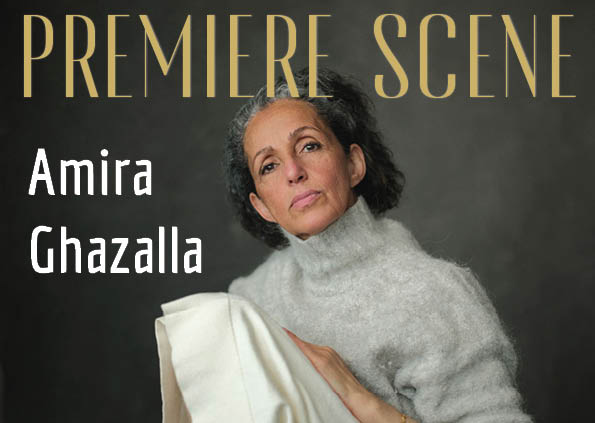
By Claire Bueno
Interviewing people like Amira Ghazalla is why I love my job. The opportunity to talk to someone who is clearly passionately committed to their craft, who is so open and willing to share this with me is a gift.
Stepping into the role of Mrs. Eaves in HBO / Sky’s new comedy horror The Baby is a brave and complex role. The story centres on Natasha (Michelle De Swarte) seemingly without a maternal bone in her body, when a baby literally lands on her lap. No ordinary baby, it possesses special adverse powers. In turn her sister Bobby (Amber Grappy) is childless and desperate. Enter Mrs. Eaves, she has a history with this baby and knows only too well the dangers it inflicts. These contrasting characters without doubt make for highly entertaining drama.
The show intelligently observes that not all women are suited to motherhood and has the courage to push the boundaries. The Baby is a comedy horror, genres that serve as great vehicles to explore the extremities of human nature. Our natural reaction when we see a baby is to coo, but what happens when the baby has murderous tendencies? Without doubt Mrs. Eaves is on a mission, my mission, to deliver a killer interview with the Egyptian actress as we talk about her character’s motivation, the complex themes and working with baby twins Albie and Arthur Hills.
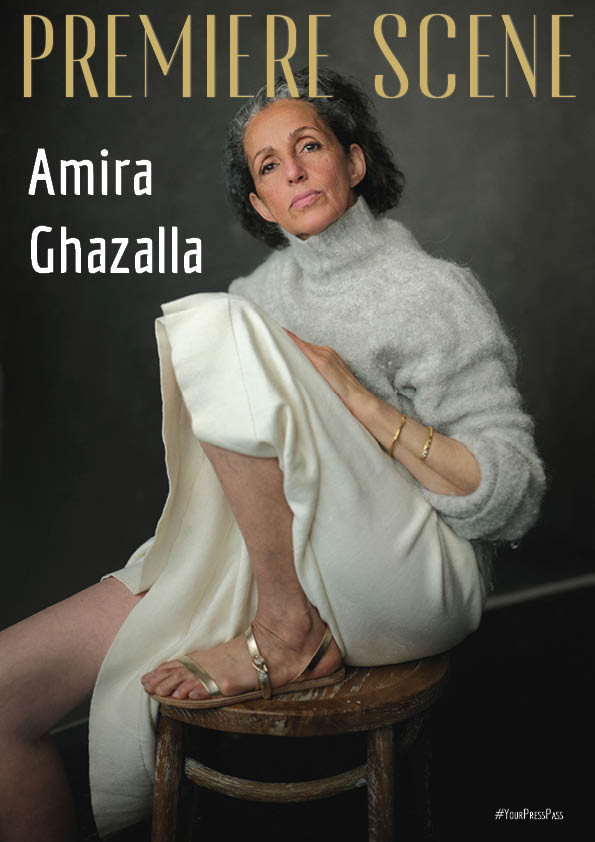
What I loved about The Baby is that it is so original and I wondered for you as an actor is that attracted you to the script?
Well you know the moment you read a script, when you’re an actor you read a lot of scripts, a lot more than you actually realise. I remember once someone telling me on a course I did, the DNA of a script is in one scene. You know when you read a script that is well written, within one or two scenes, you’re grabbed. And there is something about how the script, The Baby was written which every single one of us [actors] were very different on set (laughs), we came from very different backgrounds, but it was gripping. We could all agree, we’d tell Siân (Robins-Grace, the writer), ‘You’re a bit of a witch. How did you conjure these characters?!’ So absolutely yes, absolutely gripping. I remember for the first audition, it’s self-tapes nowadays, they actually sent out seven scripts, and I just sat there, I couldn’t get up: gripping is the word.
And Mrs. Eaves is a mysterious character, she’s a dark character, is that how you initially saw her?
I think when I read Mrs Eaves I just thought, I’ve just become who I am to become Mrs. Eaves, or characters like Mrs. Eaves. I don’t think she’s a dark character, I think she is a human that lives in a lot of darkness, who has enclosed herself in her pain, in her lack of being able to fathom what happened to her. So when we look at her as a younger person, the character of Nour, I did work very closely and
intimately with the actress Seyan Sarvan who plays Nour. She was all hope, and I worked with her on how it felt when I came to Europe, I wasn’t an immigrant I was a privileged human being who wanted to become an actor. I was full of hope, the 70s were so full of hope for the planet. I think what we tried to work together [on] is what happens to someone with so much hope who breaks so hard, so early, what darkness do they go into? But I don’t think she is a dark character, I think she was a character of light.
For an actor the backstory of a character is really important, but for Mrs. Eaves it’s crucial because it’s what has happened to her in the past that motivates the character.
Yes, I remember sitting with Faraz (Shariat) who did (directed) three of the episodes. Very young highly intuitive human being. When you are playing an older character, what I find so exciting is that you need to first build up the character, you need to build up who they are, and then when did they break. If I play someone who had their first big break when they are 60 it sits very differently in the body than when we play a character who actually emerged around her pain. She’s in her mid-twenties, liberated by going to Europe, we actually wrote it together once they cast me, which I find a bit awkward because it wasn’t me, but I was referring to the few lesbians I knew when I was young. We constructed her slowly, into this world, coming from the 70s where our whole planet was thinking progress, I mean we had just landed on the moon if you think about it.
Motherhood is a huge theme, what I loved about the show is how it shows many different aspects of motherhood, it’s not afraid to say that not all women are designed to be mothers. Do you think that was exciting about the writing as well?
I think it was exciting, really I found everything exciting about the writing, let’s just get that clear (laughs). But what I found exciting is, I’m a mother of two and I’m very much a mother, motherhood overtook me in the opposite sense. I didn’t really want children as such, I was with a man who I liked and we decided, ‘Ok, we want to have children.’ But it just overwhelmed me Claire, I just couldn’t even leave them out of my sight. So yes, motherhood is not for everyone and it could really side track you, some people really want a child and then when they have a child they can’t relate. But I think these are all things that the show tries to cover. What I find most exciting by looking at it from Natasha’s perspective who’s like, ‘Urgh what’s that?’ To the very desperate Bobby, to their mother who wanted them, but did she really want them, and does she want it all. To Nour who actually was trying to convince Helen, ‘Let’s keep that baby.’ You know Helen didn’t have a mother’s instinct, Nour did. But what is so exciting about it is that it actually questions the norm. We’re seeing it in the image of a baby in this show, but what Sian did so brilliantly, is how can we in this 21st century where everything is so fast, where the generation of my mother, my grandmother and myself have nothing to do with one another. I can’t ask my mother, ‘What did you do when you spent five hours on social media when you were a teenager?’ Because there wasn’t even [the] internet. So I think
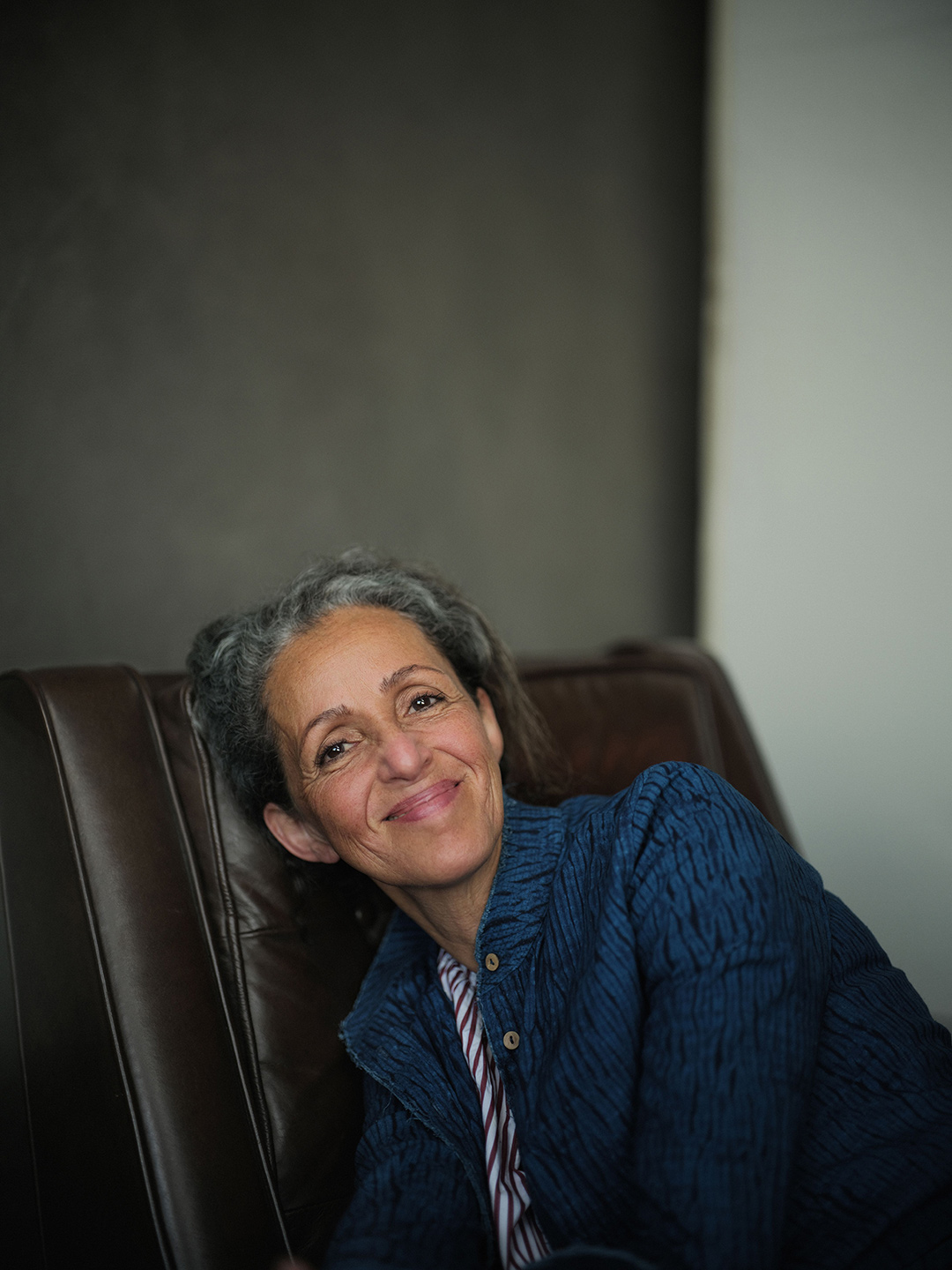
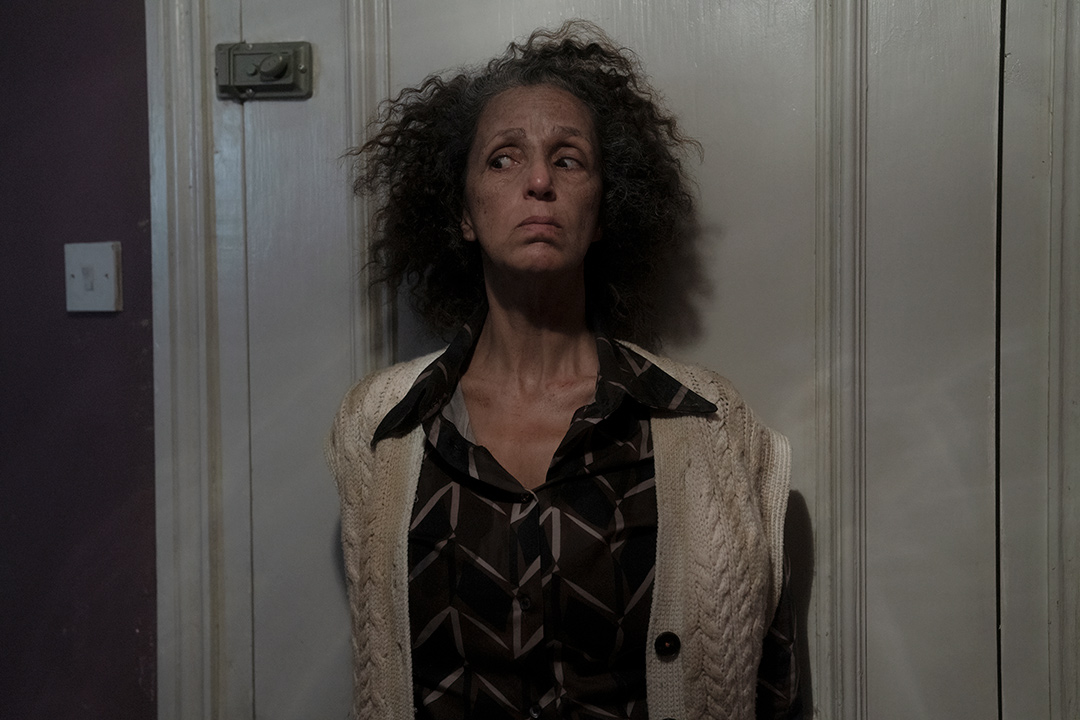
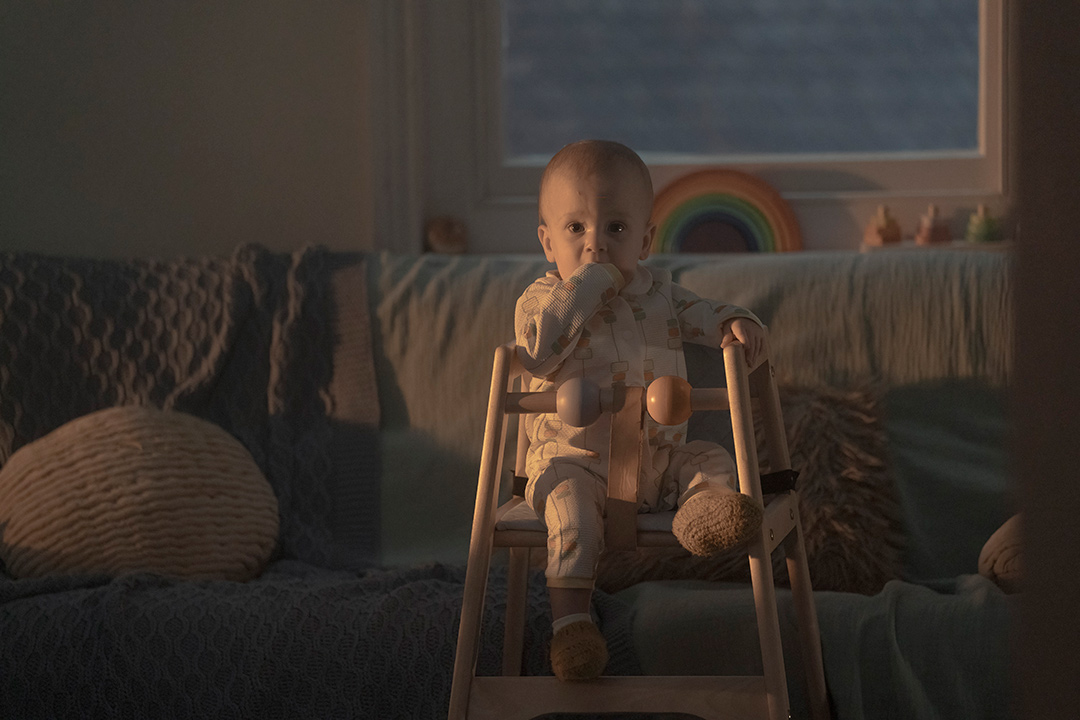
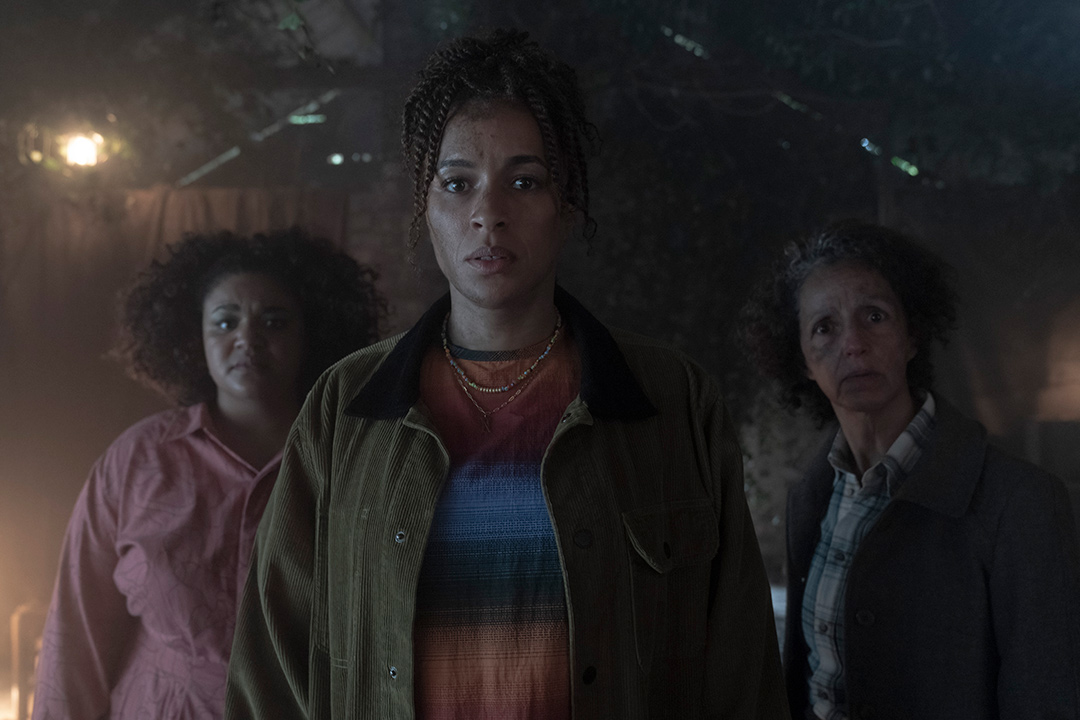
that’s important, we’re living at a time where there’s no reference for our parents to give us, and for me as a parent I have very little. So it questions that and I find that’s something we all need to do.
And of course at the centre of this is the baby. As human beings we are preconditioned to think babies are cute, but this show holds a mirror to this because the baby is a murderous little horror (laughs).
It’s an exploration of a very important subject, I think for me, maybe because I’m older, whether it’s the baby or any expectation that there seems to be a consensus about it, or the whole society says, ‘That’s how it is.’ And you go, ‘Is it? I’m not feeling it like that.’ So obviously when we take the example of the baby, it is the most universal thing. You see a cat licking her kitten, when you have a little baby, I used to go, ‘Oh.’ Even a little chair next to a big chair, used to make me go, ‘Oh.’ So when we take the example of a baby we’re taking something that we can all share, man, woman, big, small, old, ancient and young. Someone like Mrs. Eaves, she is a tragic character and because this is a comedy, she is a tragic comic. So for me what I am trying to do with this character, just to get a little bit into the craft, before I get back to the baby is; you have to establish her, you have to establish her pain. I looked at Charlie Chaplain, of course they were silent movies, he lifts his shoulder and you want to cry and you go, ‘What’s he doing? What’s he doing with all his being?’ So I would look at the baby and I would try in a second to put 50 years of pain. There’s so much that you can put in that moment, she aligned her life and got stuck. You know when we get stuck in a rut and afraid to let go of it? I think that is the trajectory. When I got the initial description of the character, it was about this randomness of the encounter and how all three characters actually heal. And funnily enough it’s the baby ultimately. There’s a lot of paradox, there’s a lot of spiralling in this story. I do a lot of internal martial arts, my teacher always says, ‘Amira, it’s holding the paradox that is the art.’ And if you’d seen them on set, they are lovely babies, proper cute. But how do you hold that paradox that you are looking at that innocent being. So without giving too much away my character has a very complicated relationship to the baby. In the show there is a moment where she finally for the first time touches that baby, she at some point after 50 years finally realises, ‘I need to kill that baby.’ But she cannot do it. But as an actor there comes that moment where after looking at these very cute babies and developing a beautiful rapport with them and then suddenly my first big scene with them where I touch them, I hold one of them, and holding the baby at arm’s length in the middle of the night with fires and lights with loads of women behind me who play ghosts. I shout the names of victims and she’s in real anger, I actually had a small meltdown, I’m a very technical actor (laughs) and I was going, ‘How can I do that? I can’t hold him like that, I can’t give ….’ I was very confused and I remember saying, ‘I need a moment.’ I spoke with lovey Faraz and I took a moment and I realised I have to separate that tension from my body and not have it in my hands, carry Albie very gently. We agreed that the voice can be ADR’d (Additional Voice Dialogue). So I’ve taken all the anger and the horror into my face, but try to keep it very gentle. It worked, it took me a bit, that was a moment of how do you deal with a live baby.
“I enjoy being an older actor, I just want to work until I’m a hundred.”
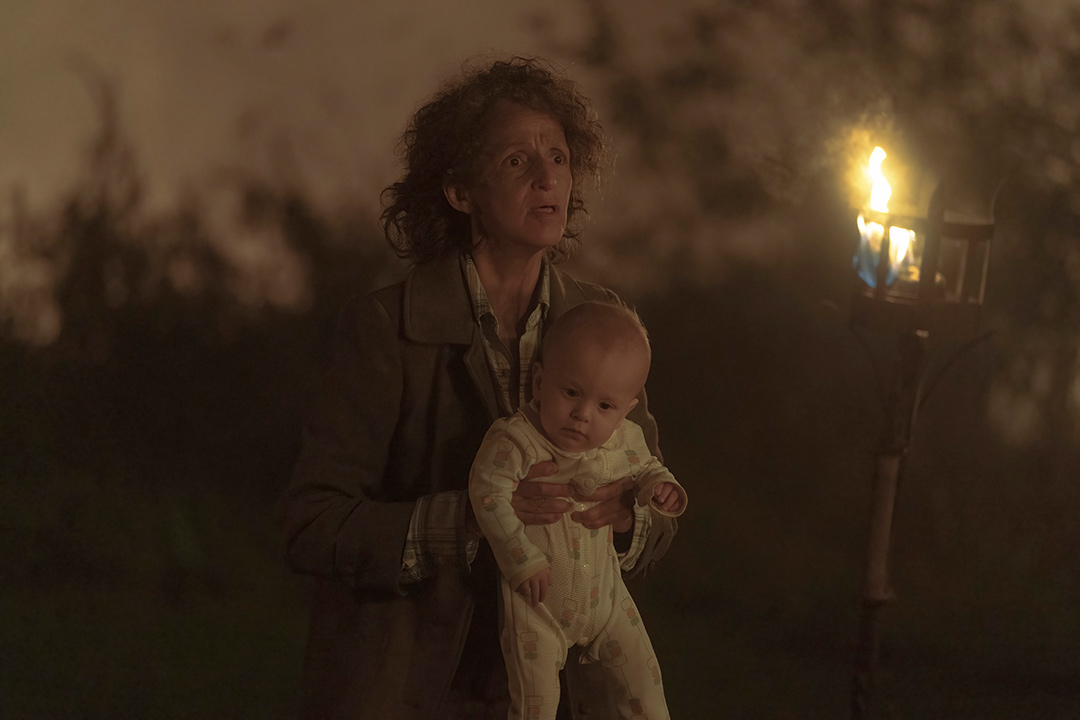
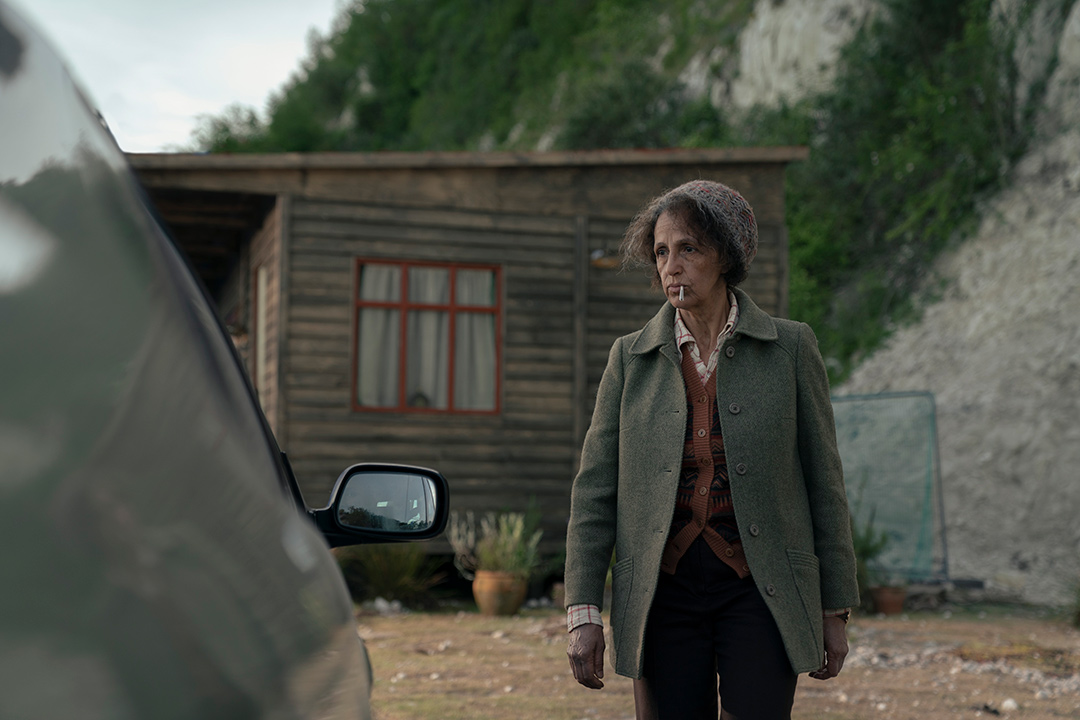
It’s obviously been a positive experience working on The Baby, but what have you taken away with you working on it?
That I so love what I do (laughs). That I love a complex score that I think may be due to my background of having been raised with four or five languages, four faiths close together. I have lived in several continents and worked in many tongues. I think I like score if I can call it that, and Mrs Eaves really allowed me that. I think what I have learned the more complex it is, it’s more potent when it’s very simple at the end; that maybe the complexity needs to rest somewhere deeper. I’m looking forward to the next one that maybe I don’t need to tell everything that much, but I need to sense it even more and bring it out lighter. And that I just want to work until I’m a hundred, that’s what I took from working on the show that I enjoy being an older actor. I find not many people in my age group as a women have the guts to play ugly, I mean they spent an hour and half making me uglier than I am (laughs). I think I took that out of the show as well, I can do it; I can go ugly if it’s going to tell the story, no problem (laughs).
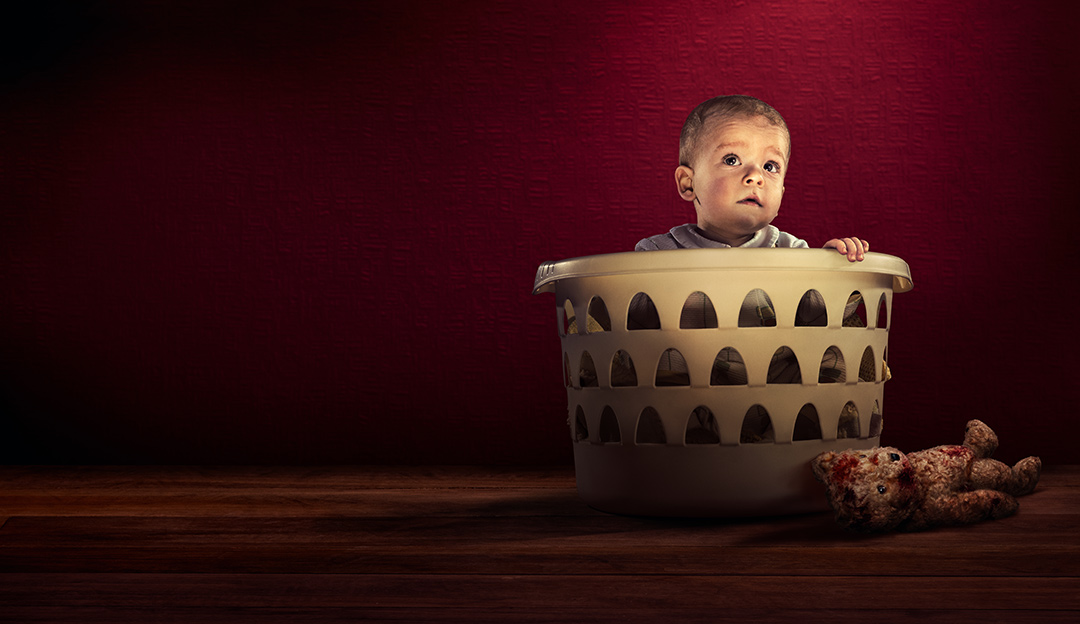
Amira Ghazalla stars in The BABY
available now, exclusively on SKY ATLANTIC
Credits
Photographer: Phil Sharp
Production Stills: © Sky UK Limited
With special thanks to Epilogue
The Baby - Official Trailer
Claire Bueno
Claire Bueno is a film journalist, presenter and interviewer, having moderated BAFTA, Royal Television Society (RTS), Women in Film and Television (WFTV), and Apple Store Q&As and hosted Comic Con panel talks. Claire is the founder of Premiere Scene Magazine and has had the privilege of interviewing esteemed artists including Tom Cruise, George Clooney, Brad Pitt, Sir Anthony Hopkins, Sigourney Weaver, Emily Blunt, Samuel L Jackson, James Cameron and Andy Serkis.
As a media coach Claire works with leading personal publicists, HBO, Netflix, Sky, ITV, Penguin Random House, the BFI, DDA, MacMillan and Premier, offering practical coaching sessions and safe environment for talent to perfect their interview technique before facing the press. She has extensive experience working with emerging and seasoned professionals and where English is not their first language.
Additionally, Claire is the producer of the critically acclaimed feature documentary CLEANIN’ UP THE TOWN: Remembering Ghostbusters and the upcoming TOO HOT TO HANDLE: Remembering Ghostbusters II.
